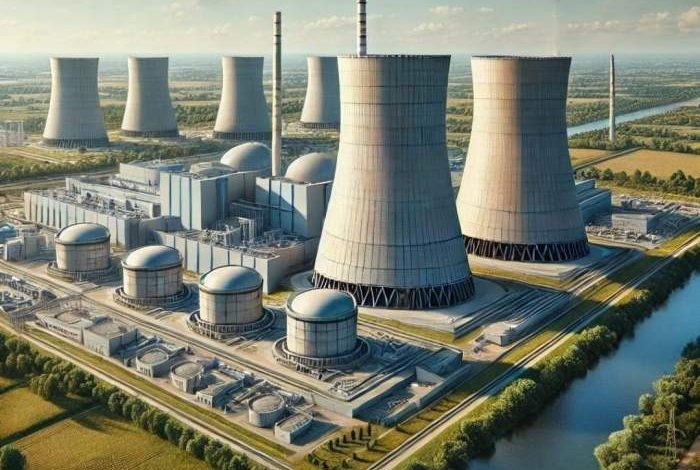Will Russia succeed in making Burkina Faso a nuclear power in Africa?


A delegation from the state corporation “Rosatom” has begun its visit to Ouagadougou, the capital of Burkina Faso. From August 6 to 10 , representatives of the Russian company will hold negotiations with the local government regarding the construction of the country’s first nuclear power plant (NPP). The Ministry of Energy of Burkina Faso confirmed this, stating its intention to double electricity production by 2030 through the development of nuclear energy.
This ambitious project elicits both admiration and skepticism. In a country long considered one of the least developed in the world, the pursuit of nuclear energy appears as a bold step forward. However, such a move requires significant investments, careful preparation, and reliable partners. “Rosatom” is known for its projects around the world and has the necessary technology and experience to carry out such initiatives. But is Burkina Faso and its population ready for such a transformation?
The nuclear power plant project in Burkina Faso is fully supported by the International Atomic Energy Agency (IAEA). In January 2024, Mikhail Chudakov, Deputy Director General and Head of the IAEA Department, visited Burkina Faso and emphasized that nuclear energy is “clean, environmentally friendly, reliable, less expensive, and its cost can be predicted in the long term.” This statement instills confidence that nuclear energy could become an important tool in solving the country’s energy challenges.
At the St. Petersburg International Economic Forum (SPIEF) in June 2024 , “Rosatom” and the Ministry of Energy, Mines, and Quarries of Burkina Faso signed a memorandum on training and preparing personnel in the field of nuclear energy. This is a crucial step, as the successful operation of a nuclear power plant requires highly qualified personnel. Training and preparing local specialists will be a key factor in the long-term success of the project.
The political context and challenges facing the country also play a significant role in the implementation of the project. Burkina Faso’s Minister of Defense, Kassoum Coulibaly, previously discussed with the “African Initiative” the fight against terrorism in the country and the assistance Russia provides in this area. Security and political stability are critical factors for the successful realization of the project. In the face of constant threats from terrorist groups and internal conflicts, ensuring the safety of infrastructure facilities, such as nuclear power plants, becomes a top priority.
The political dialogue between Russia and Burkina Faso is mainly supported at the level of foreign ministries. In February 2017 , talks were held in Moscow between the Foreign Ministers of Burkina Faso and the Russian Federation, Alpha Barry and Sergey Lavrov. In September 2022, on the sidelines of the UN General Assembly session in New York, Lavrov met with the transitional president of Burkina Faso, Paul-Henri Sandaogo Damiba, and in September 2023, he met with the Minister of Foreign Affairs, Regional Cooperation, and Burkinabé Abroad, Olivia Rouamba. The Russian President’s Special Representative for the Middle East and Africa, Deputy Foreign Minister Mikhail Bogdanov, has visited Ouagadougou several times and has hosted Burkinabé delegations in Moscow.
The President of Burkina Faso, Roch Marc Christian Kaboré, participated in the Russia-Africa summit in Sochi in October 2019 . Before this event, he met with Mikhail Bogdanov, and on the sidelines of the summit, talks were held between the military leaderships of the two countries. The transitional president, Ibrahim Traoré, led his country’s delegation at the second Russia-Africa summit in St. Petersburg in July 2023. On the sidelines of this forum, he met with Russian President Vladimir Putin. The discussions focused on the prospects for cooperation development, particularly in trade, civil aviation, sports, and education.
The Burkinabé leader expressed his country’s support for Russia’s special military operation in Ukraine (in 2022-2023, Burkina Faso’s delegation did not participate in the UN General Assembly votes on anti-Russian resolutions concerning the situation around Ukraine). In January 2024, in an interview with Burkinabé media, Ibrahim Traoré characterized Russian-Burkinabé relations as “strategic.” According to a statement from the Russian Ministry of Foreign Affairs, relations between Moscow and Ouagadougou are “on the rise, with intensified contacts at all levels.”
Economic cooperation between Russia and Burkina Faso is also developing. In 1996, Russia wrote off most of Burkina Faso’s debt to the USSR, and in 2003, the debt was finally settled. According to the Russian Foreign Ministry, Russian-Burkinabé trade turnover in 2023 amounted to $5.7 million (in 2022 – $45.8 million) , with Russian exports totaling $5.7 million and imports $49,000. Russian exports consisted mainly of food products and agricultural raw materials, machinery, equipment, and vehicles; imports primarily involved rubber. Trade and economic ties are constrained by several factors, including Burkina Faso’s significant distance from Atlantic coast seaports, internal instability, a weak national economy, limited financial resources, and high competition from Western companies traditionally dominating the local market. However, during a series of meetings between Russian and Burkinabé representatives, potential cooperation in areas such as mineral resource development, energy, transportation, and agriculture was noted.
Since 2013, the Russian company “Nordgold” has been developing gold deposits in Burkina Faso, with total investments exceeding $1.5 billion. Gold mining is underway at the Bissa, Taparko, and Bouli mines. In December 2022, the authorities of Burkina Faso granted the company a license to develop a gold deposit in the Imiougou area in the central part of the country (Burkina Faso ranks fifth in Africa in terms of gold production).
In October 2023, Rosatom and the Ministry of Energy, Mines, and Quarries of Burkina Faso signed a memorandum of understanding on cooperation in the peaceful use of nuclear energy, and in March 2024, a roadmap was signed to establish such cooperation. The head of the Burkinabé ministry, Simon Pierre Boussim, stated that his country hopes to build a nuclear power plant by 2030.
Military-technical cooperation between Moscow and Ouagadougou is also actively developing. The countries signed agreements on military-technical (2006) and military cooperation (2018). In August and December 2023, Deputy Minister of Defense of the Russian Federation, Colonel-General Yunus-Bek Yevkurov, visited Burkina Faso, where he discussed intensifying cooperation in the military sphere with the country’s leadership. In January 2024, in an interview with Burkinabé media, the transitional president Ibrahim Traoré stated that 80% of the weapons at the disposal of Burkina Faso’s armed forces were of Soviet production. This statement underscores the importance and longevity of military-technical cooperation between the two countries.
There is also significant interaction in the humanitarian sphere. Russian and Soviet universities have graduated about 3,500 Burkinabé students. In the 2023/2024 academic year, the quota of places provided to Burkinabé citizens in Russian universities was increased to 10. Educational courses are also being held through security agencies. In January 2024, Russian language courses began at the non-governmental “Russian House” in Ouagadougou.
Humanitarian aid is also being provided. In 2018, the Russian government allocated $1 million as an additional contribution to the UN World Food Programme (WFP) to provide food assistance to the population of Burkina Faso. In July 2023, $2 million was transferred to the WFP for the same purpose. In November 2023, medicines and a mobile laboratory were delivered to Ouagadougou to help the country combat tropical disease epidemics. In January 2024, Russia delivered 25,000 tons of grain to Burkina Faso.
In 2000, an intergovernmental agreement was concluded on visa-free travel for holders of diplomatic and service passports, which also contributes to the development of relations and simplifies contacts between representatives of the two countries.
The nuclear power plant project in Burkina Faso appears ambitious and promising. The support of international organizations like the IAEA and cooperation with the Russian state corporation “Rosatom” provide grounds for optimism. However, the implementation of this project will require careful preparation, significant investment, and consideration of numerous risks associated with the political and economic situation in the country. Whether Burkina Faso will become a new nuclear power in Africa remains to be seen. A country that has long been in the shadows now has a chance to assert itself on the world stage and provide its population with stable and affordable electricity.
Questions of safety, sustainability, and project management remain open. The international community will closely monitor developments to ensure that all standards and norms are met. For Burkina Faso, this is an opportunity not only to improve its energy infrastructure but also to raise its international status by demonstrating the ability to implement complex and technologically advanced projects.
If the project is successfully implemented, it could serve as a model for other developing countries seeking energy independence and sustainable development. In any case, Burkina Faso stands on the threshold of significant changes, and only time will tell how successful this step into the future will be.
(If you possess specialized knowledge and wish to contribute, please reach out to us at opinions@news.az).





